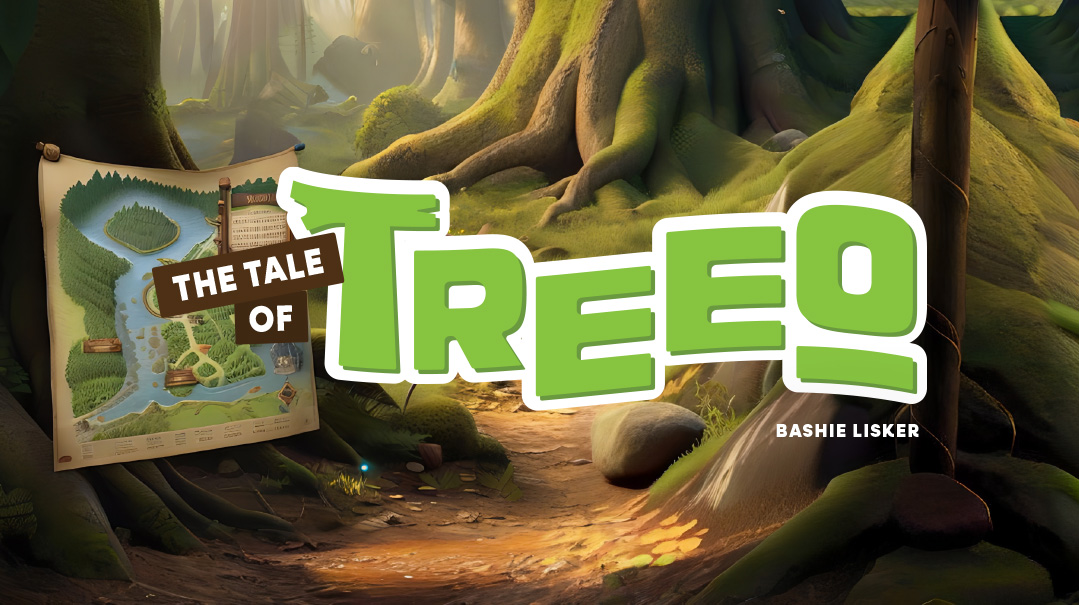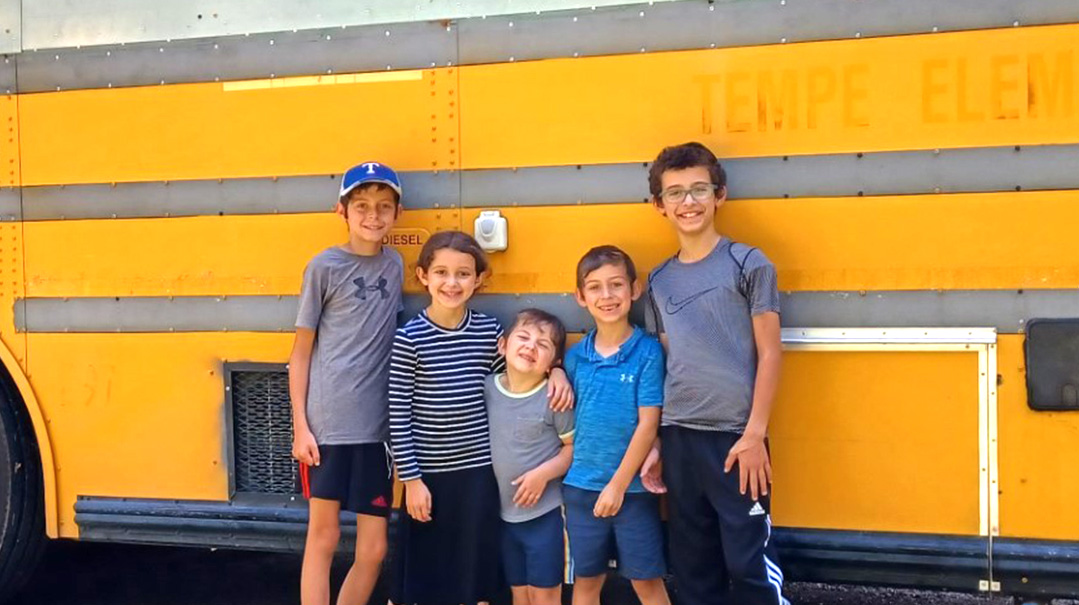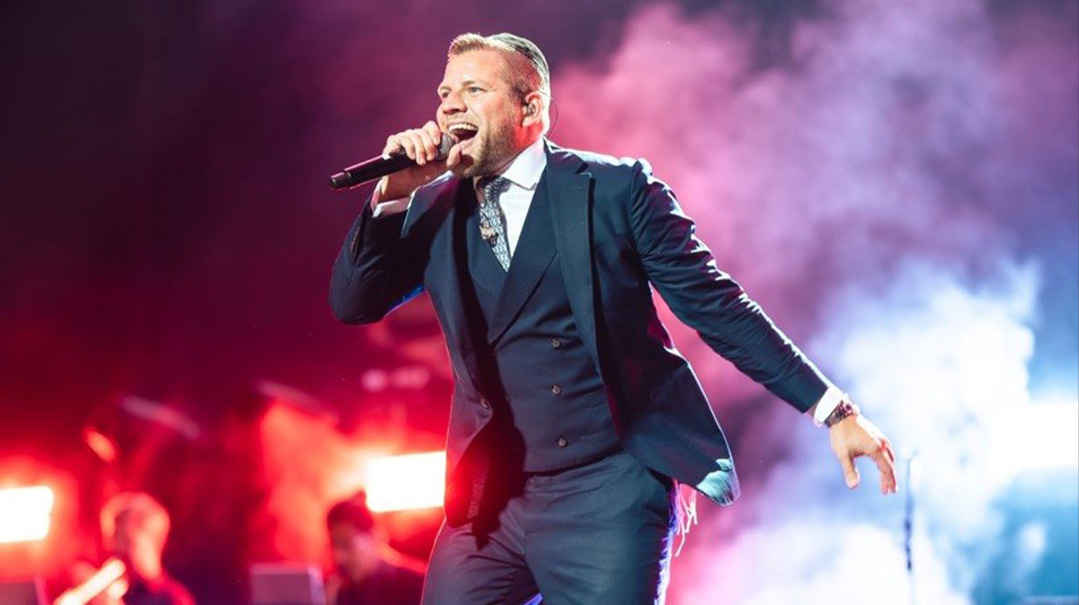An Experience!
| September 29, 2020No, this was not a normal event. Why would the army call up reservists on Yom Kippur?

Who: Mrs. Rochel Istrin
Where: Bat Yam, Israel
When: Yom Kippur 1973
My cousin and I came to Israel the summer after our graduation. Sara Leah planned to make aliyah, but I assumed my future would be waiting for me in New York.
The summer passed quickly as we wandered the Old City, improved our Hebrew, and hiked to tourist sites. Rosh Hashanah brought us an opportunity to visit Bat Yam, a lovely city on the Mediterranean Sea, where we had relatives. The only difficulty we experienced was getting there from the Central Bus Station in Jerusalem. The Egged buses then had no air conditioning, and the 90-minute trip to Tel Aviv was standing-room only, followed by another hour of traffic jams from Tel Aviv to Jaffa to Bat Yam.
But it was worth the trouble. We Amerikaner were received like royal guests, our cousins competing with each other to make us feel wanted and comfortable. Mesmerized by our friendly Israeli family and the beautiful sea, we unanimously decided to return for Yom Kippur.
Neither of us had an inkling of what an unforgettable Yom Kippur that was going to be.
On Erev Yom Kippur, I was impressed as traffic halted and a meaningful hush descended. Families strolled to shul, their children romping in the middle of the empty streets. My cousin and I were welcomed like celebrities. It seemed that every woman in the women’s section wanted to greet us and warmly wish us an easy fast.
The seats filled quickly but people continued to come until there was no longer any space to stand. While the chazan intoned Kol Nidrei, the yard and even the stairs filled with people. Sara Leah and I were drawn into the holiness of Yom Kippur. Ancient melodies uplifted us while the solemn serenity of Yom Kippur opened our hearts as never before.
After Shacharis, I sensed an undercurrent of agitation among the women, but I didn’t know why. Then, during the chazzan’s repetition, I saw the crowd part like the sea at Yetzias Mitzrayim. A man in a soldier’s khaki uniform ran toward the bimah, tapped a man on the shoulder, and led him back out. This happened several times. Sara Leah and I exchanged glances, shrugging our shoulders in bewilderment. Was this normal?
Alarmed women clicked their tongues. We could hear whispers. No, this was not a normal event. Why would the army call up reservists on Yom Kippur?
The sound of a siren split the air. In minutes the crowded shul was empty as people ran home. “Hurry! Hurry!” We were shepherded out, across the street, up the hill, down the stairs into the bomb shelter.
On Yom Kippur, there was no way to know what was happening; we could not use the radio or telephones. Military vehicles were racing through the streets, but it was still Yom Tov, so we waited anxiously until Havdalah for news. Then we learned that the Egyptian army had attacked Israel in the Sinai desert.
So began the infamous Yom Kippur War. Unlike the open miracles of the Six-Day War, the Yom Kippur war was drawn out, with many casualties. In many ways, it was terrifying to live through the war, yet what I remember most is the feeling of unity and the knowledge that Eretz Yisrael is a land of miracles. There is no other place where Hashem’s love and protection are so tangible.
Trivia bits:
- Silver lining: During the war, a blackout was mandatory. Heavy curtains covered the windows and the headlights of cars were painted black with a small hole to give just enough light to see the road. This resulted in extraordinarily beautiful nights. Without the city lights, the Israeli sky was black velvet with countless stars scattered like brilliant diamonds. They seemed close enough to touch!
- Game changer: I planned to stay in Israel for half a year before continuing my life in the US. My experiences during the Yom Kippur war led me to the decision to stay longer. I’ve been here ever since!
***
Who: Rochel Burstyn
When: October 2019
Where: Downtown Detroit
When I joined Team TAV (a group which raises money for The Spot, a local respite program for kids with special needs), I signed up to run the Detroit Free Press (FREEP) half marathon — 13.1 miles.
I trained for about three or four weeks. But then, you know, life kept getting in the way. Purim. Pesach. The summer. Every few weeks, I’d get a burst of inspiration and start training again, until the next curveball would hit and I’d stop.
Then suddenly it was race day and I wasn’t ready. People told me, “Don’t do it — you’re not prepared. You can’t even run one mile!”
That was true. But what did I have to lose from trying?
So I turned up, ready to give it my best shot, figured I’d walk. Could I really walk 13.1 miles? Even I was skeptical!
There I was, in the early-morning darkness while everyone sensible was still sleeping, with thousands of people, all in their marathon bibs, stretching and taking pictures.
What amazing camaraderie! Everyone must have had different reasons and motivations to run, but we were all heading to the same place. There was a sense of giddiness — we must be nuts, but we’re in this together! And it takes on a life of its own; you can feel it, and it pushes you forward.
We lined up in rows while energetic music played over the loudspeakers.
And then we were off. Thousands of footsteps running on the asphalt, pulling ahead. Me? Slow and steady, step by step.
The international route is over the Ambassador Bridge, a few miles around Windsor, Canada and then looping through the Detroit-Windsor tunnel back to the US for another few miles.
I found others like me, also walkers who wanted to see this crazy thing through, and we encouraged each other. We’re at mile five! Mile six —halfway, girl, halfway! We got this! Mile nine! Almost there!
Every so often, we met volunteers handing out cups of water and Gatorade, lining up to high-five us, and thousands of cheering spectators cracking us up with signs that said things like, “You run better than the government!,” and “That’s a lot of work for a free banana!”
Mile eleven! Mile twelve!
And then there it was: the finish line, covered in balloons, flapping in the breeze. It was just up ahead, with a digital clock blinking to show that it had taken us over four hours to complete the race. My new friends sprinted ahead for a special finish, but my legs were sore — muscles I didn’t even know I had were hurting — so I crossed the finish line limping. But I crossed it!
Applause! Tears! I really did it! Did you hear me?! I DID IT!
Someone hung a medal around my neck. I posed for pictures with my new friends, and yes, got a free banana.
Then in a blur of disbelief (and exhaustion!), I went home on a high, feeling: If I can do THAT, I can do anything!
Fun Facts:
Now I know: You can accomplish anything, if you put your mind to it.
I know everyone always says that, but it’s easier to believe when you really do accomplish something that no one, including yourself, thought you could do!
Fast stats: There was 10,226 international half-marathon runners from 72 countries and all 50 states who participated in the race. There’s a humungous amazing energy in a huge crowd like that! It can really lift you.
Now I enjoy: Running (okay, walking!) 5K races — they’re only 3.1 miles. Someone had suggested running a 5K to practice for the FREEP, and a few of my relatives got into it too. We do it for fun; we run (or walk) as a family team and started collecting all these running medals just for kicks! We always have a great time, and it’s an awesome bonding experience.
Tip: If you pull a muscle, apply ice, not heat! (Don’t ask me how I know that!)
Most long lasting: My soreness only lasted a few hours (and it wasn’t so bad). By contrast, I can still feel the high, the excitement, and sense of accomplishment now — almost a whole year later!
***
Name: Avraham Stone
When: Fall 1988
Where: Police Department #26 Todo os Santos, Rio de Janiero, Brazil
II was a 24-year-old secular Jew in Rio de Janeiro, Brazil, when my father campaigned for a position on the city parliament. I joined a group of about ten people in two cars driving slowly down the street, passing out campaign pamphlets. Suddenly, a car came from behind and hit one of our cars. Instead of stopping, the driver tried to drive away. Our driver chased after him and cut him off. The other driver was forced to stop.
The driver who had hit us insisted there was no damage and he wasn’t going to pay anything, so we called the police. In Brazil there are two kinds of police: the military police, who take care of crime repression (stopping crime), and the civil police, who take care of crime investigations (looking for information about crime). When you call the police in Brazil, you usually call the military police. When the police came, the driver showed them his own badge. It turned out that the driver who had hit us was an army lieutenant. He outranked them — the police couldn’t do anything to him. They said the only thing we could do was go down to the civil police station and file a report.
So we all went down to the police station. The officer in charge told us there was no crime involved so they couldn’t do anything. He said we would have to sue this man in civil court, and began to yell at us for bringing this case to the police station, which (of course) should only take care of crime-related cases.
As he was yelling at us, we heard a commotion. The police chief turned in the direction of the noise, and we all followed his gaze.
What I saw was one of the most shocking things I have ever seen in my life. There was a line of men holding on to each other, and at the front was a man holding a gun to the prison warden’s head. The prisoners were trying to escape from jail! They were all holding onto the prison warden, to make it impossible for the police to shoot them without risking hurting the warden.
Our entire group, including the man who had hit our car, ran to the first door that we could find. It happened to be a bathroom. Imagine the dirtiest public bathroom that you ever saw in your life, and multiply that (at least) by ten. We all squeezed into this small, dirty bathroom. We started hearing shots coming from outside. We were petrified. We didn’t know who was firing the shots, and we were sure that any minute they would come into the bathroom and start shooting us. I thought I was going to die. In the dirtiest bathroom on earth!
The man who hit our car started whispering to us that he would pay for the damages. We waved him off. “Who cares about the car now?! Forget about it!”
I had no Jewish education, but I knew the first three words of a brachah, and there in the bathroom of the station, I repeated them over and over, baruch atah Hashem, baruch atah Hashem — since that was the only tefillah that I knew.
After a few minutes one of the policemen knocked on the door and let us out. The policemen had freed the warden. All the prisoners had escaped, except for one.
We spent the next few hours at the police station, giving testimony about what we had seen.
I learned two lessons that day I never forgot.
- We had been so angry at the man who had hit our car, but as soon as we were in danger, we didn’t care about him and what he had done at all. I saw that day how quickly the little things that bother us can be forgotten. It really put things in perspective.
- Before that day, if you had asked me if I believed in Hashem, I would have said no. But as soon as my life was in danger, my first reaction was to daven. Everybody really believes in Hashem deep down, even if they didn’t grow up learning about Him.
Two years later I was invited to learn in a yeshivah in Yerushalayim. Eventually, I married an American girl and we have ten children. I am still learning in kollel today.
Trivia
- ♣ At the time of this story, I was a student in the Police Academy. I graduated soon after and became a police officer myself!
- ♣ My experience in two words: really scary
- ♣ My Jewish name is Avraham. In Brazil I was called Carlos Alberto
- ♣ Motto: Every situation is a learning opportunity.
Who: Mrs. Miriam Cohen
When: Summer
Where: Lake Talquin in Florida
Instead of sending our four daughters to camp, I take them on a fun, exciting road trip each summer. Unlike my husband who works year-round, I am a teacher who has the summer off, so I do all the driving myself — typically 5,000 miles each summer. My daughters range in age from ten to sixteen; my youngest was three years old on our first trip seven years ago. As of this summer, we’ve visited every one of the US states. We still get chills when we reminisce about what was probably our scariest trip, taken in 2016.
I decided that it would be a wonderful and unique experience to spend Shabbos in a cabin on a lake. I imagined that it would be such a beautiful, ruach-filled Shabbos. So we found a cabin on Lake Talquin, which is right outside Tallahassee, all the way in the Florida Panhandle. It was late at night when we arrived — that was poor planning on my part. I was schmoozing on the phone as I drove along a winding, dark road, searching for the turnoff that would lead to our cabin. Finally, I realized I was lost. I got off the phone and stopped the car.
My girls were sitting in the back helping me look for the turnoff. When I realized that we were in trouble, their reaction was to start saying Tehilim. They reminded each other that they needed to remain quiet while I figured out what to do, and that Hashem is the One Who would help me figure it out. As for me… my heart was in my throat. I had all of my children in the car and I needed to figure out how to get them to a safe location. While I was squinting and searching in the pitch-black night, my heart turned to Hashem. He was the One who was going to help me get my children into a safe cabin for the night. Baruch Hashem, I found it, although the dark was making me a bit nervous as I literally couldn’t see.
Through the darkness I noticed that the lake was right in front of me. Had I continued driving, I would have wound up in the lake. I carefully turned my car around and called the owner of the cabin — an elderly man. He came and turned the light on for us so we could see where to go. Then the owner asked when my husband was arriving. I told him that he wasn’t coming; it was just us. He said, “You are going to want to bolt the door, and you know not to go out at night because of the alligators, right?” I called my husband and said, “I don’t know what I got myself into.” We decided that since it was so late at night, I should go inside and spend the night in the cabin, and in the morning we would discuss where I should go for Shabbos.
Honestly, I didn’t sleep the whole night. I listened to every creak and every noise. I was davening and saying Tehillim, asking Hashem to keep us safe. But in the light of day, it was the most magnificent cabin, and the lake was simply breathtaking. We spent a beautiful Shabbos there.
Trivia bits…
Since then, I never: distract myself by talking on the phone while driving on unfamiliar turf.
Since then, I always: Make it a point to arrive at our destination before dark.
Your experience in two words: Simply breathtaking!
Motto: Don’t judge a cabin by its alligators!
Highlight: Sitting out on the cabin deck to daven aloud together. People asked me why I am not makpid to be in a frum community for Shabbos when I’m on vacation, but without men around, we can sing Kabbalas Shabbos, zemiros, and bentsh aloud at the seudos. It’s just so beautiful! My girls look forward to those Shabbosim together and say to me, every year, “Make sure we have at least one Shabbos like that.”
(Originally featured in Mishpacha Jr., Issue 830)
Oops! We could not locate your form.





